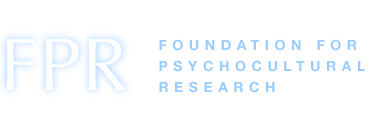Download a copy of the funding policy here.
1. Use of funds
Grant funds must be used in accordance with (a) the budget and timeline included with the approved grant proposal and (b) the Foundation’s current funding policy.
Grants are made only for the purposes allowed by the IRS and other government agencies relating to grants from private foundations under US Internal Revenue Code Section 501(c)(3).
2. Funding policy
The Foundation makes grants only to pre-selected nonprofit organizations and does not accept unsolicited requests for funds. The Foundation does not support indirect expenses of any kind.
a. Grant proposal guidelines
i. Budget estimates (please review our guidelines and submit using the FPR template in Excel) to specify:
Type of grant
Title of proposed project
Name of the applicant(s)
Name of the funding/grant manager in charge of the applicant’s project
Estimated project start date and end date
Itemized budget estimate
ii. Budget justification
Additional information is required if the proposed project is a part of another project/collaboration that receives funding from other organizations, including a justification for the supplemental funding request.
iii. Timeline to specify:
Title of proposed project
Name of the applicant(s)
Name of the funding/grant manager in charge of the applicant’s project
Project start date
Period of activities and targets
Project end date
Grant closing date
Deadline for submitting the final written reports
b. Grant payment
Grant funds will be awarded to grantee’s home institution/department, to be disbursed to grantee for the purpose described in the proposal and in accordance with the budget and timeline included with the approved proposal.
Research Travel grant funds will be awarded to grantee’s home institution/department, as reimbursement for eligible and documented travel expenses for the purpose described in the proposal. Please include all receipts with the request for reimbursement.
c. (Home) Institutional endorsement of applicant
All applicants and grantees must be currently affiliated with an accredited U.S. or Canadian institution of higher education.
Applicants must submit a signed endorsement letter from the department chair or program director. The endorsement letter – on organizational letterhead – should refer to the proposed grant.
d. Institutional contact
Please provide the Foundation with the name and contact information of the departmental fund manager in charge of the grantee’s account.
The fund manager of the grantee’s home institution/department is responsible for the following: (1) acknowledging receipt of the Foundation’s grant funding by completing and returning the grant award documents to the Foundation; (2) approving and signing the final and financial reports before the grantee submits them to the Foundation (within sixty days of the end of the grand funding period).
e. Changes in the proposal or to grantee’s institutional tax-exempt status
Grantee will furnish to the Foundation any information concerning a change in the proposal or to grantee’s institutional tax-exempt status.
If grantee’s tax-exempt status changes or if funds are not used for the purpose described in the approved proposal, the Foundation reserves the right to have all remaining grant funds immediately returned.
f. Institutional review board (IRB)
Grantees are required to provide an official university-issued IRB approval or exemption document for research projects as a condition for finalizing the institutional agreement and transfer of the award if the project uses data or material collected from human subjects.
g. Grant reporting guidelines
Grantees must provide a final written report to the Foundation within sixty (60) days of the closing of the grant period. This should describe conclusions, progress, and/or status of objectives (e.g., a summary of the online meeting, a description of the new curriculum and its evaluation, productive results of a research project) and a budget reconciliation including the final balance and any remaining unexpended funds.
The fund manager of the grantee’s home institution/department should approve and sign the final and financial reports before grantee submits them to the Foundation.
h. Unexpended balance
Any unexpended funds remaining at the end of the grant period (i.e., on or before 11/30/2022) must be returned to the Foundation, in US funds, within sixty (60) days of the closing of the grant period.
i. Overhead/Indirect costs policy
Grant funds may not be used for indirect costs such as institutional overhead or administrative costs (utilities, fringe benefits, etc.).
3. Travel policy
Funds may be used only for economy class flights, other local modes of transportation, lodging, and meals. Applicants should use current fares obtained from travel agents or online services (e.g., Expedia.com) for proposed dates. Applicants and workshop participants are solely responsible for incidental costs. Grantees are responsible for all logistics, including making all travel arrangements (e.g., economy-class flights, hotel), as well as for all incidental costs.
4. Closeout
To close out an FPR grant, the grantee must submit to the Foundation the following documents within sixty (60) days of the end date of the grant funding period: (i) final report; and (ii) budget reconciliation. Unexpended funds should be returned via check made payable, in U.S. funds, to “The Foundation for Psychocultural Research” and mailed to the attention of the Director.
5. Publications and acknowledgment policy
Publications resulting from grants must carry the following acknowledgment: “This work was supported by grant (grant number) from the Foundation for Psychocultural Research.”
The FPR may distribute information regarding the grant on our website and other print and online sources for publicity purposes.
FPR support should also be acknowledged by the grantee and by the institution in all public communication of work resulting from this grant, including scientific abstracts, posters at scientific meetings, and other media and Internet-based communications.
6. Intellectual property
The FPR has the right to post workshop summaries, conference summaries, or course syllabi on the FPR website.
